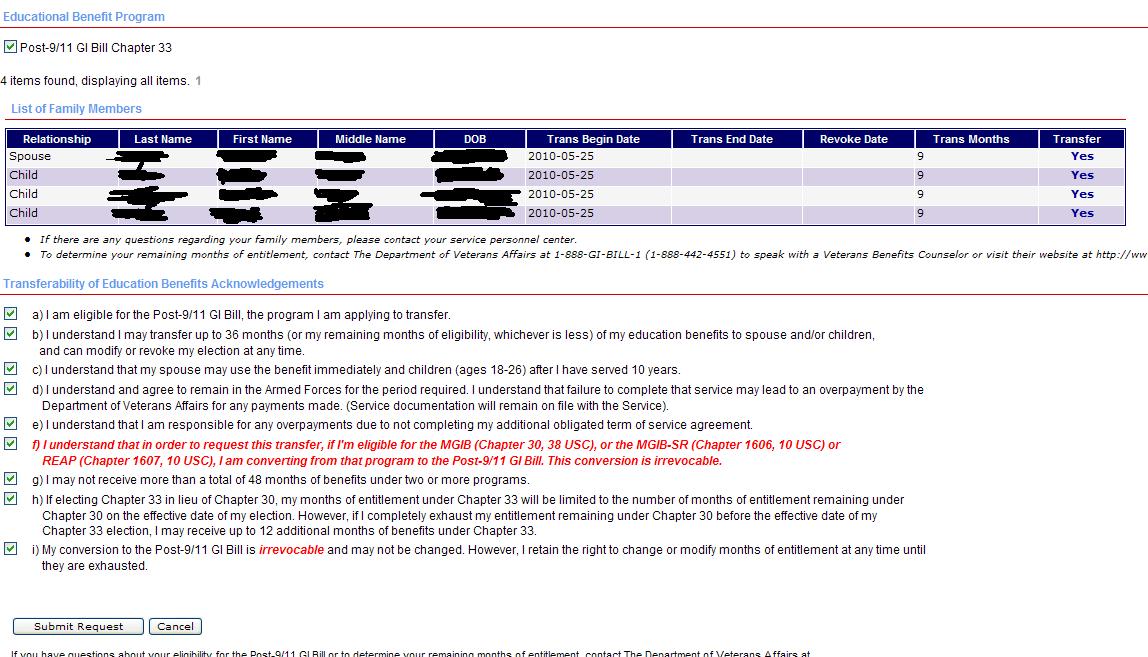- Joined
- Aug 23, 2008
- Messages
- 408
- Reaction score
- 162
I just recently discovered this and wanted to share with all.
A servicemember (enlisted or officer) is eligible to TRANSFER HIS/HER BENEFITS from the post-9/11 GI Bill if he/she has a) served at least 6 years of active duty after 9/11 and b) agrees to serve at least 4 more years. These 4 years can be served CONCURRENTLY (NOT CONSECUTIVELY) with an HPSP or USUHS obligation but NOT ROTC or Academy obligation (this would be served CONSECUTIVELY); therefore USUHS grads can take advantage of this while incurring NO ADDITIONAL obligation and HPSP grads from the primary care specialties will incur only 3 additional years in the reserves. Those HPSP grads doing 5 year residencies will incur NO ADDITIONAL TIME. I have confirmed this statement with my branch manager at the HRC.
This is potentially a HUGE financial windfall as many private institutions (i.e. Ivy League schools) are participating in the yellow ribbon program which "makes up" the difference b/t their tuition and that of the most expensive public school in the state. The post-9/11 GI Bill will cover 36 months of tutition at the most expensive public school in the state as well as housing (BAH of an E5).
For those of us in medical specialties where we are being financially devastated by the military, this benefit as well as moonlighting may make life more palatable until our ADSOs end.
A servicemember (enlisted or officer) is eligible to TRANSFER HIS/HER BENEFITS from the post-9/11 GI Bill if he/she has a) served at least 6 years of active duty after 9/11 and b) agrees to serve at least 4 more years. These 4 years can be served CONCURRENTLY (NOT CONSECUTIVELY) with an HPSP or USUHS obligation but NOT ROTC or Academy obligation (this would be served CONSECUTIVELY); therefore USUHS grads can take advantage of this while incurring NO ADDITIONAL obligation and HPSP grads from the primary care specialties will incur only 3 additional years in the reserves. Those HPSP grads doing 5 year residencies will incur NO ADDITIONAL TIME. I have confirmed this statement with my branch manager at the HRC.
This is potentially a HUGE financial windfall as many private institutions (i.e. Ivy League schools) are participating in the yellow ribbon program which "makes up" the difference b/t their tuition and that of the most expensive public school in the state. The post-9/11 GI Bill will cover 36 months of tutition at the most expensive public school in the state as well as housing (BAH of an E5).
For those of us in medical specialties where we are being financially devastated by the military, this benefit as well as moonlighting may make life more palatable until our ADSOs end.

